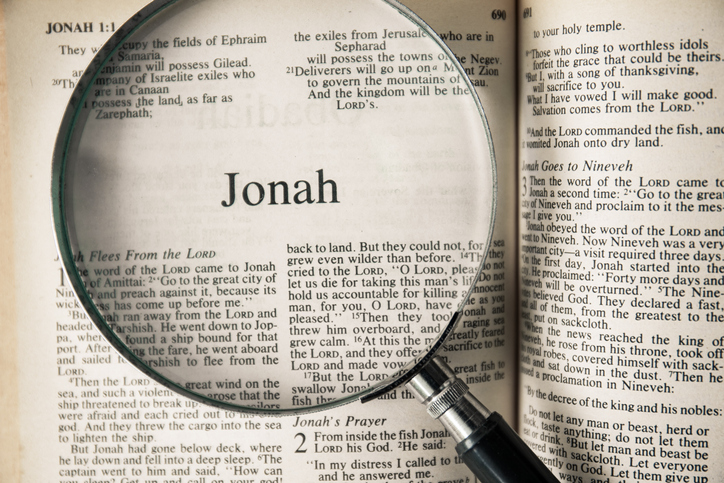Have you ever done the classic God test? “I am going to pray for this specific thing, God, and if it doesn’t happen then you are not real.” We judge God by his power and if a specific thing doesn’t happen then we assume that somehow God has lost his power or doesn’t even exist.
We have to dive into this a little because I know many people who have fallen away from faith due to this mentality. A lot of it has to do with putting ourselves in the proper place. If God did, in fact, created us than he knows ultimately what is good for us. It might be impossible for our human minds to see how a good could ever come from cancer or from terrorism, but if we try to put on divine glasses we can see that maybe someone with cancer drew closer to their family and God through the process or we might see how our country united as one through the events of 9/11.
God is always acting with his power, it’s just not always the answer we may expect, because God knows better than we do. In the Gospel today, Jesus explains this using the analogy of a friend. Have you ever had a friend who was a good enough friend to tell you that you were being an idiot or that they could see when you were making a mistake and they gave you some tough love?
I think we need to draw this part of the analogy in. When we ask for things from God we may not receive it because a greater good is possible and God wants our ultimate fulfillment. It is the ultimate act of love just like a friend would do for us.
But does this take away God’s power? We hear the classic praise and worship song where we sing, “There is power.” Do we still believe it? Do we believe that Jesus has power still to this day and that prayer and the sacraments are effective ways for God to communicate grace? Or are we among those who believe that grace exists on a timeline in history to the point where after so many years it runs out?
If there are three things I take from this Gospel today it’s that God has the ultimate power, I need to be smaller and trust that he will take care of me in the proper way, and that God truly wills my good.
If we start to believe that God doesn’t answer prayers, simply because it’s not the exact answer we expected, then we are essentially saying that the cross meant nothing. I want to proclaim that the cross has real power, Jesus’ sacrifice had real power and still does to this day, and God’s love is still present and active in the world. Let’s ask for the grace to put on those divine classes and see. From all of us here at Diocesan, God Bless!

Tommy Shultz is a Solutions Evangelist for Diocesan. In that role, he is committed to coaching parishes and dioceses on authentic and effective Catholic communication. Tommy has a heart and a flair for inspiring people to live their faith every day. He has worked in various youth ministry, adult ministry, and diocesan roles. He has been a featured speaker at retreats and events across the country. His mission and drive have been especially inspired by St. John Paul II’s teachings. Tommy is blessed to be able to learn from the numerous parishes he visits and pass that experience on in his presentations. Contact him at tshultz@diocesan.com.




















